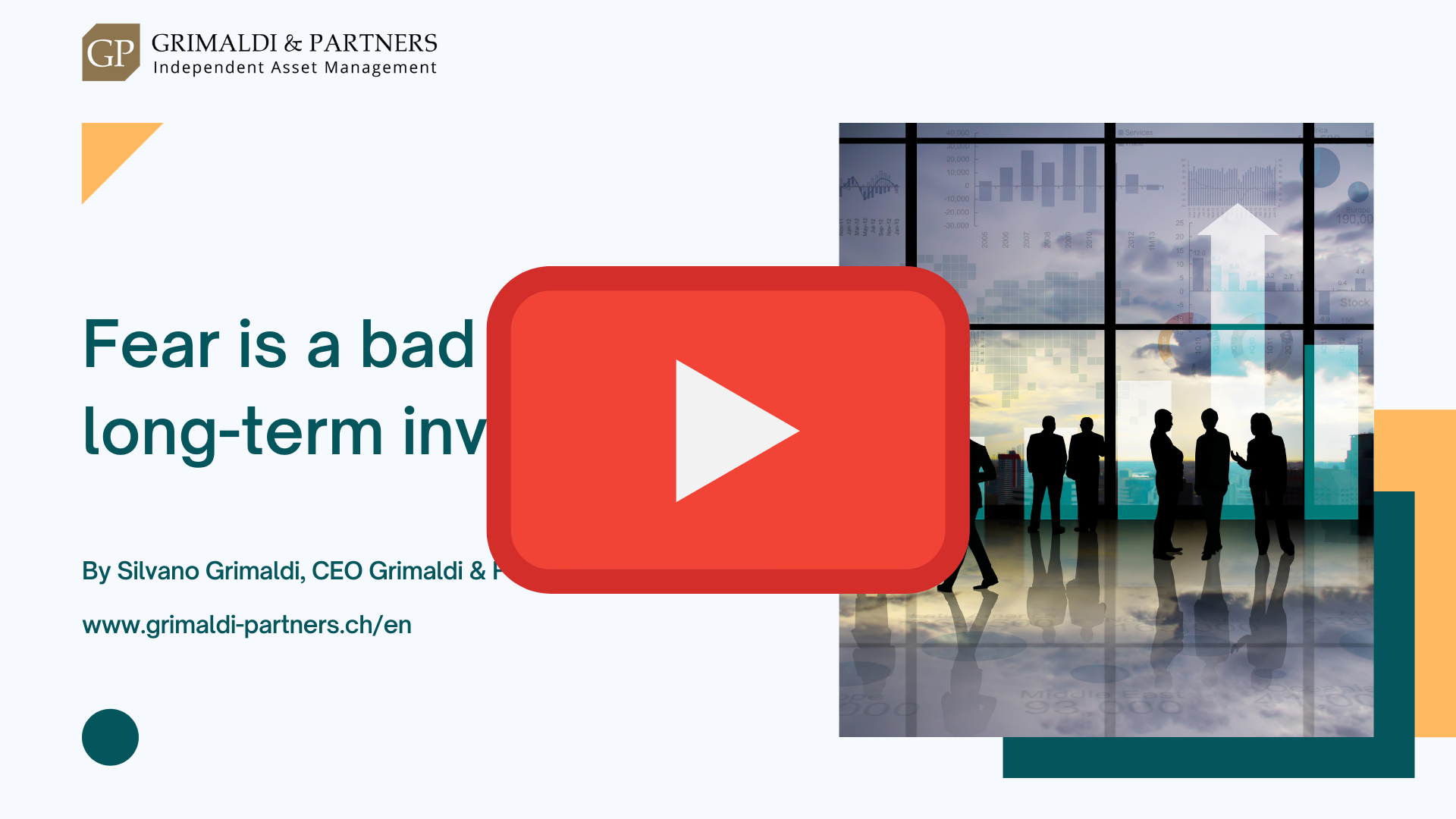GRIMALDI & PARTNERS: Fear is a bad guide for long-term investors
By Silvano Grimaldi, Grimaldi & Partners
Zurich – What effects will the Ukraine war have on the economy and inflation? Is the worst of the stock markets over with the mid-March slump? Silvano Grimaldi, CEO of the independent asset management company Grimaldi & Partners AG, gives you the answers to these questions.
Uncertainties, fears and volatility
In addition to the uncertainties about the effects of the central banks' reactions to the high inflation rates that have already been decided and those that are still to be expected, fears about the geopolitical and economic consequences of the war in Ukraine are currently affecting the behavior of many investors. The volatility indices for stocks and bonds, which have alternately risen and fallen for a good year now, are an indication of the extent of widespread uncertainty and fear. The volatility of bond yields and share prices is likely to worry many private investors in particular. However, it is often overlooked that, for example, the SMI is currently around 10 percent higher than it was a year ago (as of March 21).
Concerns about economic development
In particular, there is still little clarity about the not only short-term but also the medium-term global effects of the sanctions imposed on the Russian Federation (RF). The only thing that is certain is that the individual economic areas will feel the effects of the economic sanctions imposed on the RF to varying degrees. Due to the high dependency of some European economies, a far-reaching renunciation of imports of the energy sources oil, coal and gas from the RF would lead to serious economic problems, especially for these countries, which cannot be easily solved in the short term.
Whether, and to what extent, the expected reductions in private consumption will affect GDP developments in the USA, the EU and other European countries also depends on how the global economy develops – in view of a possibly longer period war in Ukraine – will develop. A significant slowdown in global economic growth can no longer be ruled out at present, despite a booming US economy that is practically unaffected by the sanctions (good state of the labor market, ongoing strong fiscal stimulus, increasing exports of armaments, etc.).
The natural interest rate should not be exceeded
Equity investors are partly worried about rising interest rates and capital market rates. However, rising interest rates do not always lead to price declines on the stock exchanges. As long as the key interest rates minus the expected inflation rates are below the natural interest rate (= interest rate up to which the central bank can raise interest rates without slowing down the economy), companies and private households can continue to refinance relatively cheaply.
Rate hikes will remain limited
The five-year inflation expectations in the USA, which are currently still just under 3 percent, would already require key interest rates which, given the high level of debt in the public and private sectors, will almost certainly lead to an interest burden that can no longer be sustained. A recession would then be inevitable. The EU and some other European countries are in a similar situation. The interest rate hikes that are often expected will therefore remain limited and will only change the attractiveness of equity investments slightly compared to government bonds and most corporate bonds.
Growth or value stocks?
Choosing between growth and value stocks is a frequently discussed topic. However, not all growth stocks are currently overvalued, and not all value stocks are undervalued either. Therefore, the only question to be answered is whether a share also promises long-term returns. When making an investment decision, an investor should therefore primarily consider the fundamental data that essentially determine the development of a company. In addition to the traditional valuation standards of price-earnings ratios, price-book value ratios, etc., this includes in particular the historical development of dividends and returns on equity and the prospects for future profits. Investments in shares of companies whose market position is at risk or which have not yet been able to generate any profits should be avoided as far as possible in times of uncertainty.
Conclusion
Due to the expected stock price volatility, private investors in particular should continue to prefer a mix of investments in stocks of high-dividend companies (dividend stocks) (home bias) and stocks of fast-growing and established companies (growth stocks) such as the US tech giants in particular. They are usually shares of companies that can still achieve solid growth in sales and profits even in an environment with higher interest rates. However, the distributions must not be at the expense of the substance of a company. Reliably generated cash flows and solid balance sheets are indications that there will also be potential for distribution and growth in the future.
© 2022, Grimaldi & Partners AG
GRIMALDI & PARTNERS Independent Asset Management is a renowned independent Swiss asset manager domiciled in the city of Zurich. The management, Silvano Grimaldi, Master’s Degree in Economics and Reto A. Lyk, PhD. in Law, are distinguished former bankers with an excellent reputation and more than 25 years of professional experience in asset management industry. The top-class management team ensures that business is run perfectly for the benefit of our customers. Grimaldi & Partners stands for independent, neutral, transparent, cost-conscious, performance-oriented asset management with better asset protection.
GRIMALDI & PARTNERS AG
Address: Rautistrasse 33 8047 Zürich
Phone: 044 520 00 10
Email: info@grimaldi-partners.ch
Website: www.grimaldi-partners.ch





